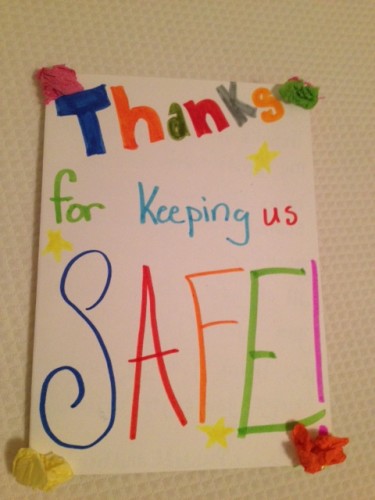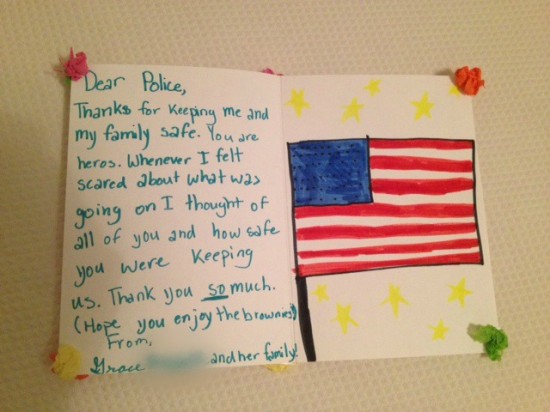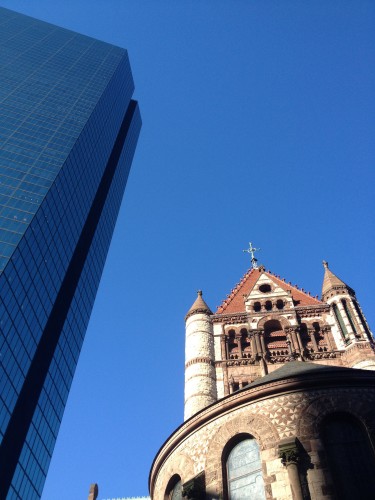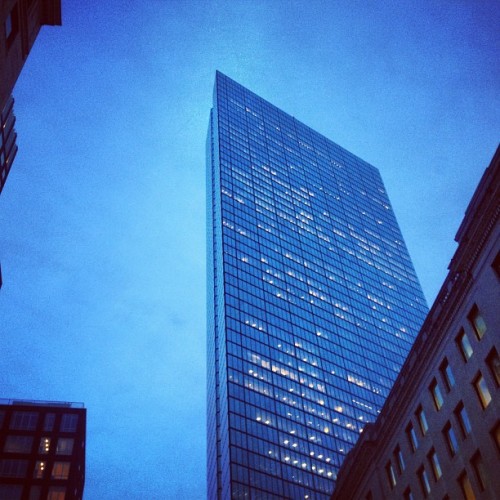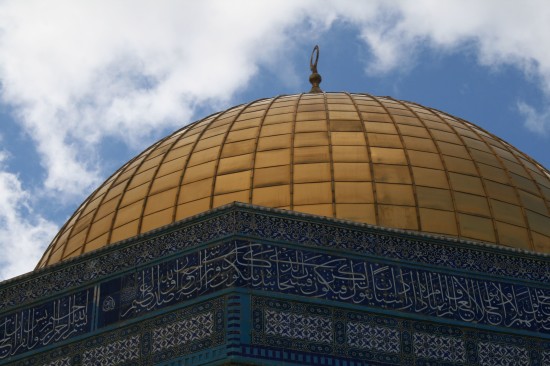
Since our trip to Jerusalem last year I’ve been mulling an essay about faith and the unknown and our inadequate vocabularly to talk about these things. The essay, in my head, is called “the language of mystery.” I’ve never written it. In particular, the idea came to me when we drove by a mosque one day last winter in Cambridge. We were stopped at a red light on Prospect Street and Grace pointed out the window. She called Whit’s and my attention to a building to our right. It was a mosque, and I realized that though I had driven past that mosque more times than I can count, I was now, after my experience in Jerusalem, noticing it in a new way. The mosque is covered with beautiful blue tiles, on some of which are elegant white characters in Arabic.
“Is that Hebrew?” Whit asked from the back seat. No, I explained, it was Arabic. We talked about how our cousin Hannah knew how to say “thank you” in both Hebrew and Arabic and, perhaps more importantly, knew when to use each.
I felt an unmistakable frisson of fear and bewilderment when I read that that mosque is where Tamerlan Tsarnaev worshiped and where he stood up and asserted his radical views in January of this year.
But I let that chill go. The truth is that that fact, while certainly uncomfortably close to home, doesn’t change how I felt that day driving by the mosque. It doesn’t change how I still feel. I was struck by my childrens’ innocent confusion of two languages that they don’t know; they aren’t aware of how radically opposed those languages are in many places, how infrequently anyone who knew would interchange them. They just see a holy site, a place where people worship their God, and a language they don’t know. They and I have long admired the beautiful tiling on the side of the Cambridge mosque, just as we noticed and appreciated the outrageously beautiful detail on the side of the “gold dome” in Jerusalem (that is the photograph above).
My mind skipped from Grace and Whit’s confusion of these two languages to thoughts about language in general. I love words, there is no question about that. But I also know that in a great many circumstances it feels like a blunt tool to express what it is I experience. There is so much of life that runs through the fingers of language even as I grasp at it. Slippery, inchoate, both too enormous and too tiny to put into words: life itself.
This week, in addition to rededicating myself to not taking this ordinary life for granted (in this effort I know I join millions of others), I will refocus on the mystery at the heart of all of our experience. The mystery that pulls our glance to the sky, that brings tears to our eyes, that inspires glorious buildings, that moves us to write words that make others gasp with recognition. Isn’t all writing – all art, all living – grasping for the vocabulary to express the mystery around which our lives revolve?
Maybe it’s time to write that essay. There is so much mystery, so much faith, so much we all love, and so little adequate vocabulary to express it.

